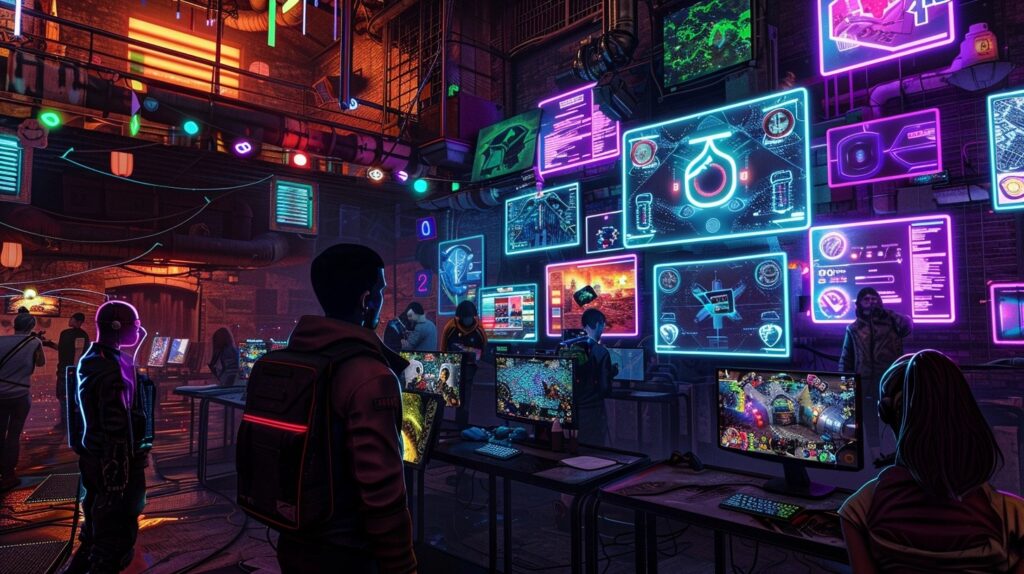You’ve likely noticed how game patches can shift your gaming experience, often for the better. They address bugs, tweak gameplay mechanics, and sometimes introduce exciting new content. This responsiveness can enhance your satisfaction and keep you engaged longer. However, the real question is how these updates cultivate a sense of community and loyalty among players. What factors contribute to this dynamic, and how do developers ensure they’re meeting your expectations? Exploring these aspects reveals deeper insights into the relationship between patches and player engagement.

Importance of Game Patches
Game patches play a crucial role in keeping players engaged and satisfied by fixing bugs, balancing gameplay, and introducing new content.
When you encounter glitches or bugs that disrupt your gaming experience, a timely patch can save the day. These updates not only resolve technical issues but also enhance your overall enjoyment. You want a seamless experience, and patches ensure that your favorite games run smoothly.
Balancing gameplay is another key aspect of patches. If a character or weapon feels overpowered, it can create frustration among players. By adjusting these elements, developers maintain fairness and challenge, which keeps you invested in the game. You appreciate a well-balanced environment where skill and strategy matter.
Player Retention Strategies
To keep players engaged over the long term, developers often implement various retention strategies that complement the benefits of regular game patches. One effective approach is to create a sense of community. By fostering communication through forums, social media, or in-game chat, players feel more connected, which boosts their loyalty to the game.
Another strategy is to introduce regular events or limited-time challenges. These not only keep the gameplay fresh but also encourage players to log in frequently to participate. Rewarding players for their engagement is crucial; consider offering daily login bonuses or milestone rewards to motivate consistent play.
Moreover, personalized experiences can significantly enhance retention. By analyzing player behavior, developers can tailor content, such as quests or challenges, to suit individual preferences, making players feel valued.
Lastly, ensuring that the game remains balanced and fair is vital. Addressing player feedback through patches can prevent frustration and keep players invested in the game. By combining these strategies with timely patches, developers can create a dynamic environment that keeps players returning again and again.
Effects on Player Satisfaction
Regular patches directly enhance player satisfaction by addressing bugs, balancing gameplay, and introducing new content that keeps the experience enjoyable.
When you encounter a frustrating bug, it can ruin your immersion and lead to dissatisfaction. However, timely patches fix these issues, allowing you to focus on what you love about the game.
Balancing gameplay is another critical factor. If a character or weapon feels overpowered, it can diminish your enjoyment. Patches that adjust these elements help maintain fairness and challenge, making every match or encounter feel rewarding.
Moreover, new content keeps the game fresh and exciting. Whether it’s a new map, character, or feature, updates give you reasons to return. You’re more likely to stay engaged when there’s always something new to explore or experience.
Ultimately, these regular updates show that developers care about your experience. When you see that your feedback leads to tangible changes, your trust in the game strengthens.
This combination of fixing problems, enhancing balance, and adding exciting content creates a satisfying gaming experience that keeps you coming back for more.
Community Feedback and Engagement
Developers thrive on community feedback, using it to shape patches that resonate with players and enhance the overall gaming experience. When you voice your thoughts on forums, social media, or in-game chats, it creates a direct line of communication with the developers. They listen, analyze, and often prioritize the issues you raise, whether it’s balancing gameplay, fixing bugs, or introducing new features.
Engagement doesn’t stop at feedback, though. Many developers actively involve you in the patching process through beta tests or public discussions. This involvement makes you feel like you’re part of the game’s evolution, which can significantly boost your satisfaction and loyalty. If a developer acknowledges your feedback and implements changes based on it, you’re more likely to stick around and continue playing.
Moreover, when developers share their plans and updates with you, it fosters a sense of community. You’re not just a player; you become part of a larger narrative. This shared experience can create emotional investment in the game, making you more likely to remain engaged long-term.
Your voice matters, and your feedback can shape the future of the game you love.
Future Trends in Game Patching
As technology evolves, game patching is set to become more dynamic and responsive, tailoring updates to player behavior and preferences in real time. You’ll see developers harnessing advanced analytics and machine learning to analyze gameplay data instantly. This means patches can be implemented based on your specific playstyle, addressing issues you encounter or enhancing features you enjoy.
You can expect more frequent, smaller updates that don’t disrupt your gaming experience. Developers will likely use cloud-based systems to push patches seamlessly, minimizing downtime. This approach fosters a more engaging environment, as you won’t be sidelined by lengthy update processes.
Moreover, community-driven patching will gain traction. You might find that your feedback directly influences the game’s direction, as developers prioritize updates based on player input. This collaborative approach enhances your connection to the game, making you feel valued.
Conclusion
In conclusion, game patches are vital for keeping players engaged and satisfied. By addressing bugs, balancing gameplay, and adding fresh content, you enhance your gaming experience.
Plus, when developers listen to your feedback, it builds trust and a sense of community. As gaming evolves, you can expect even more innovative patching strategies that prioritize your needs and preferences.
Embracing these updates not only keeps the game enjoyable but also strengthens your connection to the gaming community.

